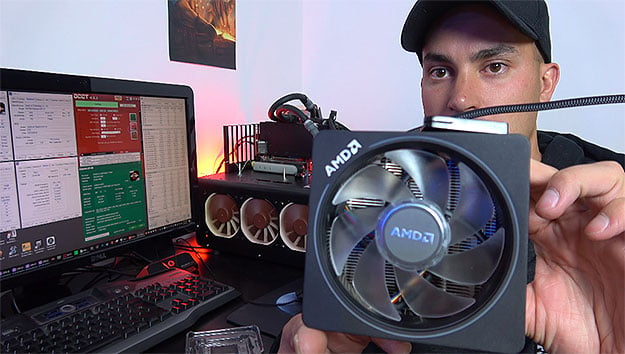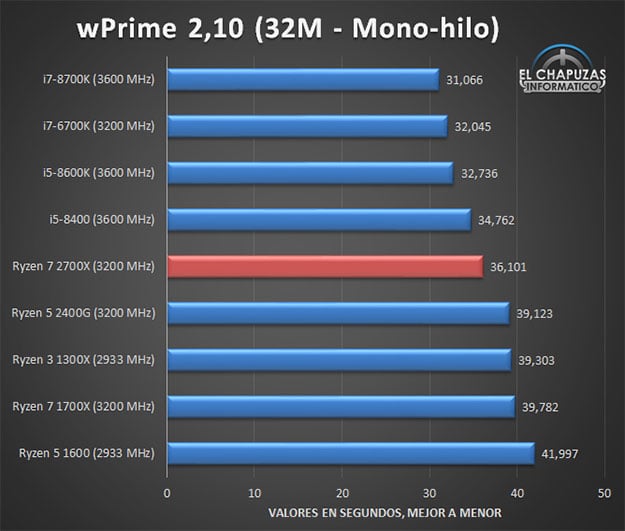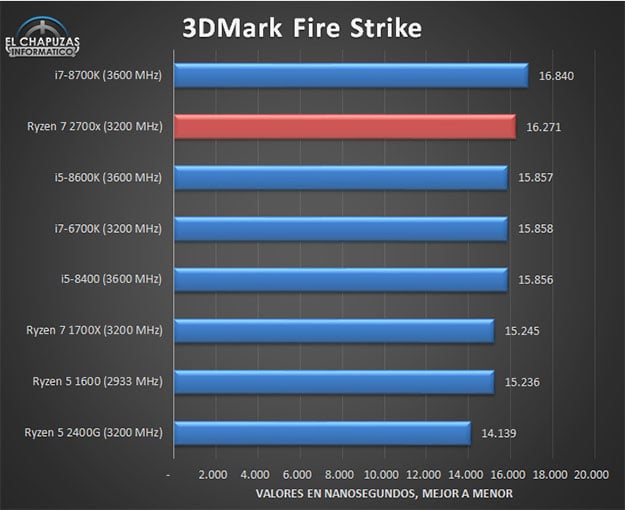AMD Ryzen 7 2700X Benchmark Leaks Reveal 4.3GHz Overclocking Potential On All Cores

We are still a couple of weeks away from AMD launching its second generation Ryzen desktop processor lineup, otherwise known as Pinnacle Ridge. Leading up to the launch, however, it appears that a few customers have been able to get their paws on some of the new chips through online retailers turning a blind eye to embargoes. This has led to some early benchmarking and overclocking analysis.
Before we get to all that, let's briefly go over the architecture and clear up any potential confusion that might exist.

Pinnacle Ridge is an optimized version of AMD's first generation Ryzen processors (Summit Ridge), and is built on a smaller manufacturing process (12 nanometers versus 14 nanometers). AMD is calling the underlying architecture Zen+, not to be confused with Zen 2 (Matisse), which will be built on a 7nm process node and released sometime next year. The promise with second generation Ryzen parts is improved performance, with higher clockspeeds and presumably better power efficiency as well.
Now onto the leaks. Over at El Chapuzas Informatico, the site was able to obtain a Ryzen 7 2700X processor. It is an 8-core/16-thread processor with a 3.7GHz base clock and 4.35GHz boost clock, along with two stacks of 8MB of L3 cache for 16MB total. The site ran it through a series of benchmarks, albeit in an ASRock X370 Killer SLI motherboard. AMD created a new X470 chipset for Pinnacle Ridge, though unlike the second generation Ryzen parts, retailers don't appear to be selling the new motherboards early.
Here's a look at a couple of CPU benchmarks the site ran:


The chip excelled in wPrime's multi-threaded run, edging out Intel's 6-core/12-thread Core i7-8700K processor, and leaving AMD's first generation Ryzen lineup in the rear-view mirror. It also showed gains in single-threaded performance compared to first generation Ryzen parts, but fell behind Intel's modern lineup.
The site ran a handful of other benchmarks, and interestingly the Ryzen 7 2700X did not fare as well in memory testing, with regards to latency and overall performance. It fell a little bit behind existing Ryzen chips. We have to be careful not to read too much into that, as updated drivers and a new chipset could certainly boost scores. We'll just have to wait and see.

As for gaming, El Chapuzas Informatico paired the processor with an MSI GeForce GTX 1070 Gaming Z graphics card and compared it against a few other processors. Performance ended up landing near the top, sandwiched between a Core i5-8600K and Core i7-8700K, and a decent clip above a Ryzen 7 1700X. Unfortunately, the site was not able to perform any individual game benchmarks because the platform would crash, due to lack of driver support.
What about overclocking? The site was only able to hit 4.2GHz on all cores at 1.4V. However, HardwareNumb3rs also got its hands on a Ryzen 7 2700X and saw some better results, tweeting out that it was able to hit 4.3GHz across all cores, also at 1.4V. The site also posted a CPUz validation of 4.35GHz with the chip installed in an ASUS ROG Crosshair Hero VI motherboard.
OC (Work in progress) Ryzen 7 2700X @ 4300MHz All Core - Cinebench R15 1958 Points with @ASUS_ROG Crosshair Hero VI (please update the bios!!!)
— Hardware Numb3rs (@HardwareNumb3rs) April 6, 2018
+ CPUz Validation @ 4350MHz #TestingRyzen2700X pic.twitter.com/M5jWDorONL
Overall, the collective results are pretty good, all things considered. There are two things to bear in mind when analyzing the numbers. The first is that updated drivers and BIOSes will undoubtedly improve performance and overclocking capabilities, once the new chips officially launch. And secondly, nobody should expect Pinnacle Ridge to blow away Summit Ridge in performance. That is not the goal. Zen 2 is where we should see a bigger gap in performance, with Zen+ delivering smaller gains across the board.
Top Image Source: YouTube via Hardware Numb3rs

